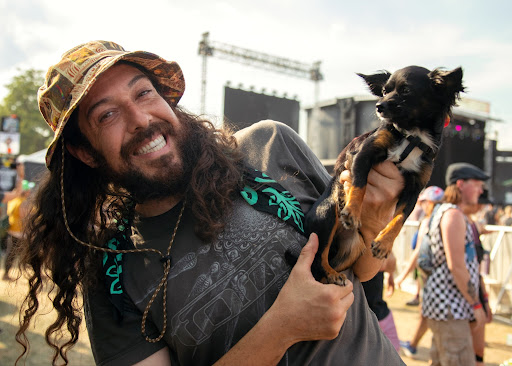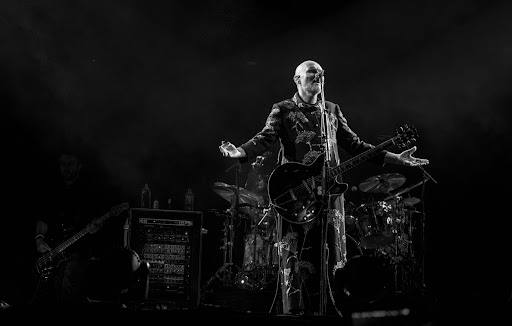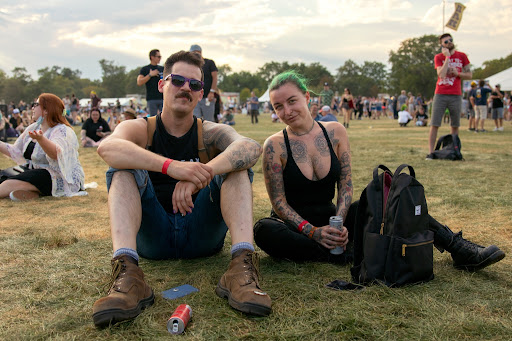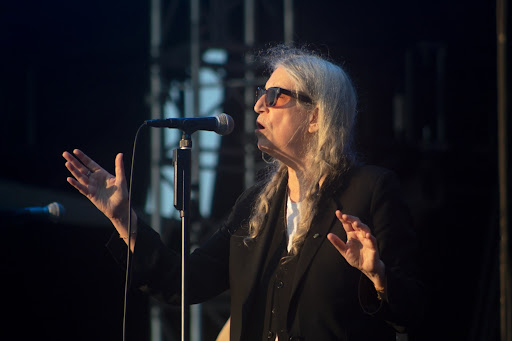After a year’s delay due to the pandemic, Riot Fest was once again back on for the music festival’s 16th anniversary, offering a long-awaited opportunity for fans to celebrate punk.
Last year, live music came to a standstill due to COVID-19. During 2020, many Chicago music festivals, like Lollapalooza and Pitchfork, were canceled, Riot Fest included. Ticket holders were given the option to defer their tickets to 2021 or 2022.
As a safeguard for guests, this year’s Riot Fest required attendees to provide proof of COVID-19 vaccinations or negative COVID-19 tests in order to enter the festival. Riot Fest encouraged guests to wear face coverings, but they were not required.

The festival ran from Sept. 16 – 19 in Chicago’s Douglass Park and featured over 90 different artists performing punk, alternative, rock, metal and hip hop music.
Attendees still felt the weight of COVID-19’s impact on live music.
“I’m a registered nurse, so it’s been devastating,” said Michelle, an attendee at Riot Fest. “Live music is what has always kept me going.”
For many, Riot Fest 2021 provided an opportunity to attend a live music event for the first time in over a year.
“Beyond the obvious of not going to a live show for a year, this is the first time seeing live music since right before the shut down,” Bob Vail, a punk fan, said.
Still, despite its inhibitions, COVID-19 has also served as a way for people to connect to their local music scenes.
“[COVID-19 has had an impact] both in negative and positive ways,” Gail said. “I’ve actually been involved in my own punk scene a lot more since COVID with local shows and everything.”
Riot Fest was established in 2005 as an environment for individuals to celebrate punk music and its culture. Punk began as a rejection to mainstream music and quickly evolved into a form of identity rooted in political and social activism, rebellion and individualism.
Punk’s anti-authoritarianism values pushed the genre forward into its own subculture. While fascist groups have tried to identify with the punk subculture, the punk community has rejected their attempts at aligning with them. The 1981 song “Nazi Punks F-k Off” by the beloved punk band The Dead Kennedys has become a hardcore punk stable in rebuffing fascist attitudes.
Pioneers of punk such as the Stooges, the Ramones and the Patti Smith Group embraced a DIY approach to creating music and paved the way for generations to collaborate through a shared set of beliefs and love of music. Punk has given way to other genres such as metal, emo and pop punk. Performers at Riot Fest 2021 such as Machine Gun Kelly, Taking Back Sunday and Fever 333 embrace punk music’s roots and use its influence to craft their own sounds.

Smashing Pumpkins frontman William Corgan performing at Riot Fest on Friday night. 
Riot Fest attendees sitting in front of the Riot Stage on Friday evening.
Although punk music is characterized by its raw declarations of aggression, it also provides an inclusive space where people feel free to be themselves.
“Punk music teaches you about other people, your community and society,” said Diego Vigueras, another Riot Fest attendee. “It’s music that gives you a lesson and makes you feel like a better person.”
While punk music’s roots emphasize political and social awareness, it can also act as an outlet for individuals to express themselves.
“I love being free and dancing, jumping around and doing that s—t,” Gail said. “It’s no judgment, honestly. That’s what it is.”
Other attendees connected to the positive environment that punk music creates.
“It’s a place where you can meet like-minded people and listen to some really good music,” Casper said.
Photos by Hannah Matthews
